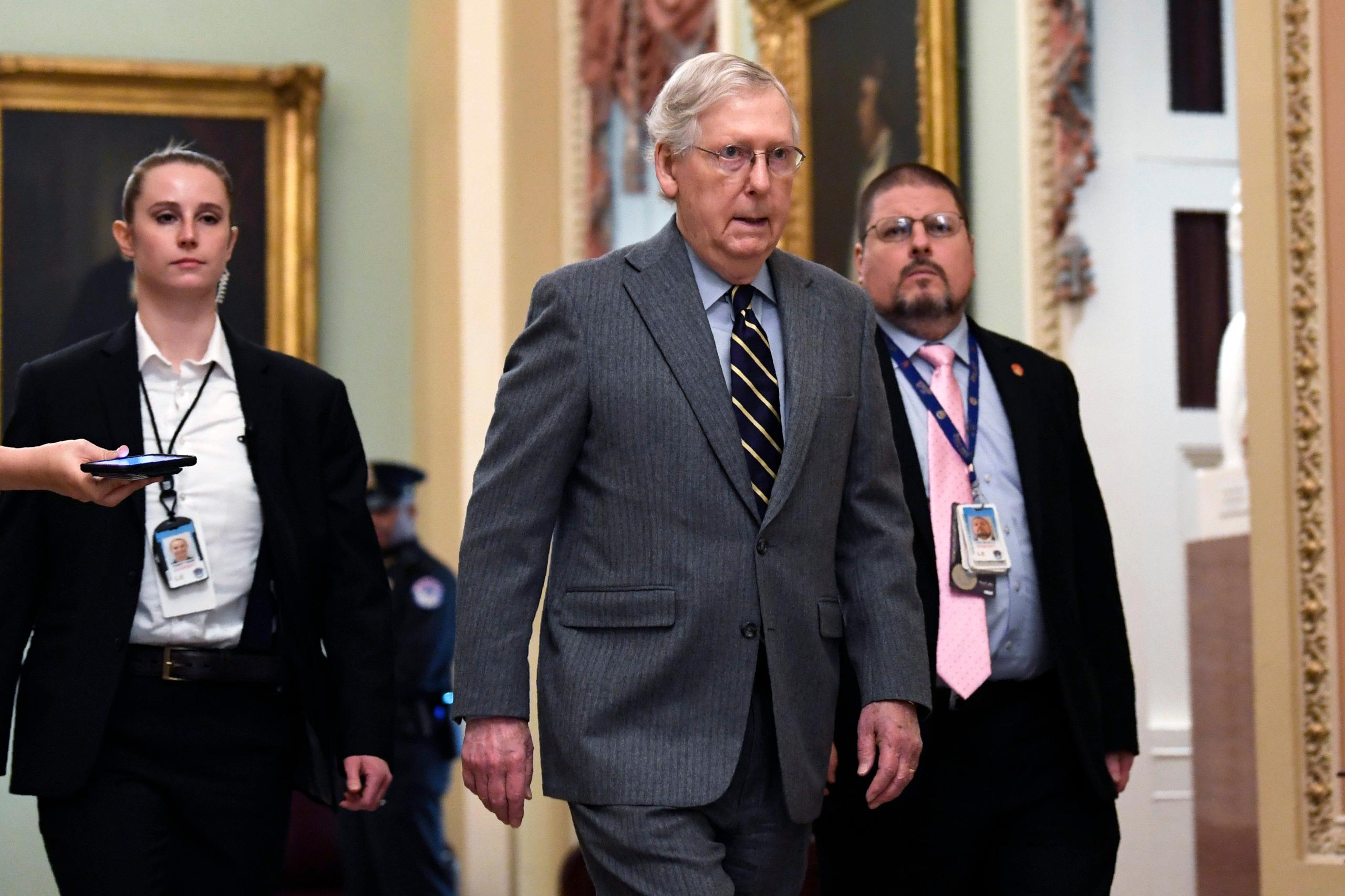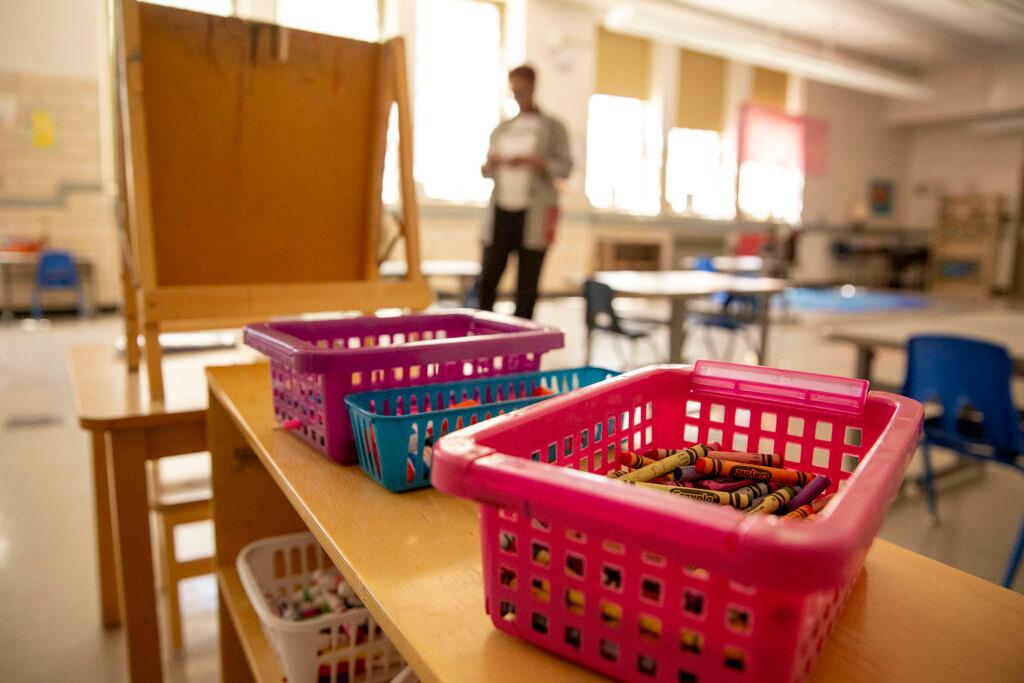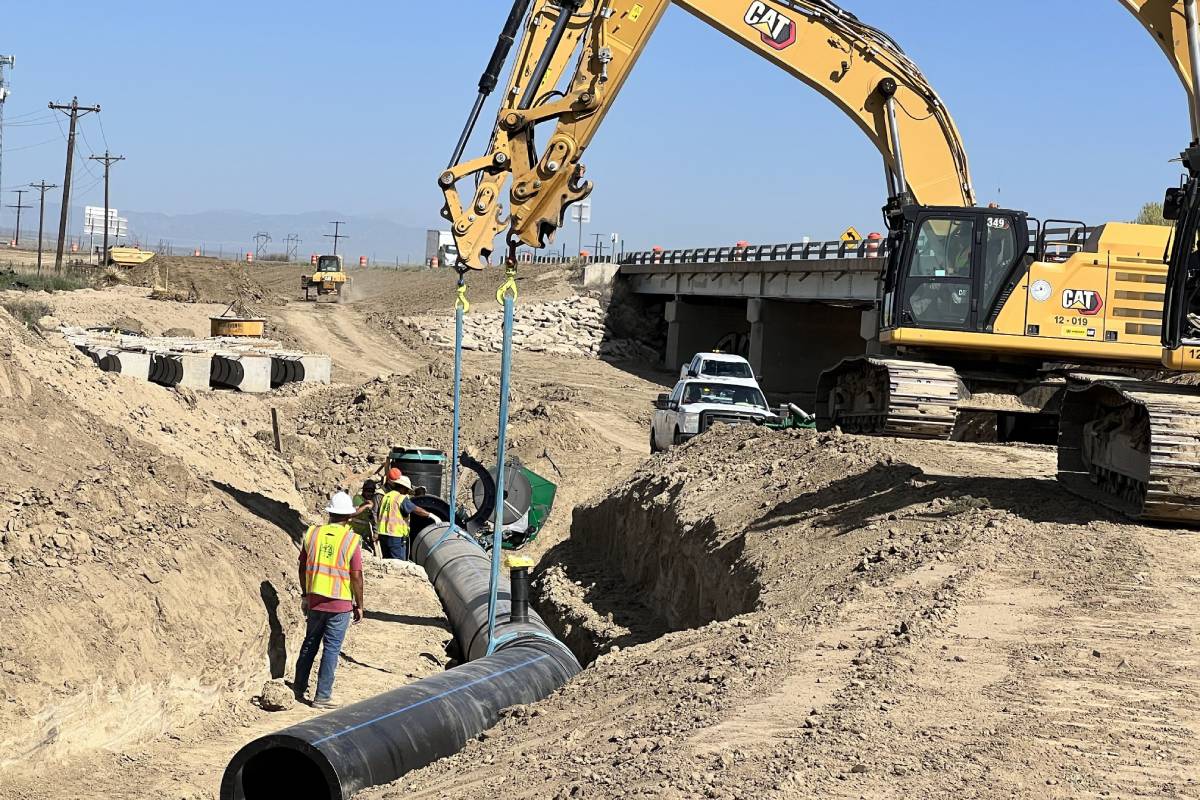
Updated 5:48 p.m.
With the Senate back in session, Republicans are hoping to do what they couldn’t before leaving for the August recess: get themselves united behind a “targeted” and “focused” coronavirus relief bill.
The bill, titled Delivering Immediate Relief to America’s Families, Schools and Small Businesses Act, includes $105 billion for education, $16 billion for testing and contract tracing, $20 billion for farm assistance, and $15 billion for child care. The bill would continue the paycheck protection program, which lapsed last month, and send unemployed workers a weekly federal unemployment benefit of $300 — down from the $600 people were receiving until August. It also includes the main priority for Senate Leader Mitch McConnell — liability protection for businesses, schools, and others, in case people get sick from visiting or working on their premises.
It’s about half the cost of the bill Republicans unveiled at the end of July, and trillions less than the House-passed HEROES Act.
“It does not contain every idea our party likes. I am confident Democrats will feel the same,” McConnell said. “Yet Republicans believe the many serious differences between our two parties should not stand in the way of agreeing where we can agree and making law that helps our nation.”
Among the things left out: an additional round of stimulus checks and rental and mortgage assistance, which also lapsed at the end of July.
GOP Sen. Cory Gardner is calling on his colleagues from both sides of the aisle to support the bill.
“We have an opportunity to support out-of-work Americans, help small businesses, and provide critical resources to stop the spread of COVID-19,” Gardner said in a statement. “This bill is desperately needed and we must work together to move our country forward.”
But Democratic Sen. Michael Bennet said instead of playing political games, McConnell should come to the negotiating table “in earnest and support American families through this crisis.” Bennet said that McConnell had months to negotiate this next relief package to address “the scale of the public health crisis” and help struggling Coloradans, instead of McConnell “put forward a half measure that’s coming months too late for working families.”
The GOP Senate bill does not include any additional state and local aid, something Bennet and Gardner have said they support.
“I know it’s maneuvering. Both sides do it. Neither side is getting to a solution that addresses the critical issues, one of which is state and local funding,” said Kevin Bommer, executive director of the Colorado Municipal League. At this point, he said, many local governments are preparing budgets for next year on the presumption that there will be no additional aid.
“We’d sure like them to see the forest for the trees and understand that now is the time to assist state and local governments to ensure we don’t see cuts in programs, cuts in personnel,” he said.
Former Gov. John Hickenlooper, who is running against Gardner, said there is a lot not included in the GOP bill.
“I think it’s so skinny that really, I think, it’s a first step. It’s a negotiation that hopefully could take place in a day or two,” Hickenlooper said at a campaign event with people who say they need another coronavirus relief bill, including a local leader, teachers, and a veteran. “I can go down the list of things that aren’t in this skinny bill. Again, this is a crisis. We don’t have the time for dragging out the negotiations.”
But a Gardner spokesperson laid blame at the feet of Democrats, saying,“they are simply playing political games and standing in the way of more relief reaching Coloradans in need.” She added this is the 5th relief bill, and it’s not the end of Congress’s response to COVID-19.
Negotiations on the bill stalled during the August recess and have yet to restart in earnest. Hickenlooper added that’s not the way Washington is supposed to work.
“That’s what I want to change,” Hickenlooper said. “Once the election is over, let’s get past the politics and start doing what people need.”
But part of what is making negotiations so difficult now is the fact that an election is looming.
House Speaker Nancy Pelosi and Senate Minority Leader Chuck Schumer said in a joint statement that “Senate Republicans appear dead-set on another bill which doesn’t come close to addressing the problems and is headed nowhere.”
The Congressional Democratic leaders added the “emaciated bill” is about helping “vulnerable Republican Senators by giving them a ‘check the box’ vote.”
But moving forward with the bill will also put pressure on Democrats. It will need support from at least some of them to pass the 60 vote threshold to make it to the floor for a final vote. McConnell, who is planning the procedural vote as early as Thursday, says Democrats will have a chance to “walk the walk.”
“Every Senator who has said they want a bipartisan outcome for the country will have a chance to vote, for everyone to see. Senators will vote this week. And the American people will be watching,” McConnell said.









